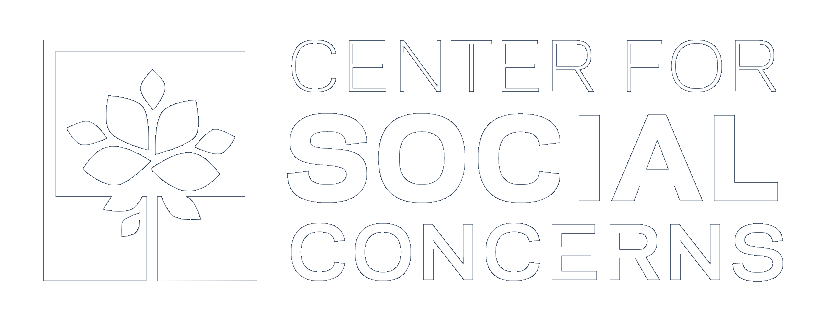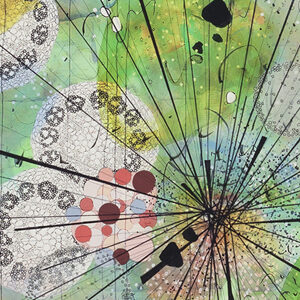The formation of elites has always been an uncomfortable subject for Americans because we think the whole idea of elites somehow violates our democratic ethos. In a society of equals, it feels wrong to speak of how a leadership class should be fostered.
But “elite” really just describes something inevitable: Whatever a society’s frameworks for ascension to influence, power, and wealth, some people will rise and some will not. Those who do rise are that society’s elite. Every society, therefore, has its elites. The question is how they are chosen, formed, empowered, and constrained. Who gets what privileges of power and status, and on what grounds?
Until recently, the United States had a genuine plurality of elites, which was good for our democracy. The people who ran major corporations were pretty different from the people who taught in universities, who were different from those who staffed federal agencies, acted in Hollywood movies, wrote for major newspapers, or led labor unions. These groups of elites were likely to have meaningfully distinct kinds of education, religious affiliations, political tendencies, and cultural affinities. Today, all of those people are likely to be much more alike. They probably all think fairly similarly about religion, culture, politics, and much else. There is now a discernible American elite class with its own cultural character, and it is in charge of most major institutions—except for those to which you have to be elected, which it controls only about half the time.
The university is at the center of what defines this class. Its members not only all went to college, but mostly attended one of the top 5 percent or so (that is, the top 200 or so) of America’s universities. Whether they like it or not, these top schools—which include public and private institutions, large and small—are where our elites are formed, and so they have an obligation to think seriously about elite formation.
Our leading universities avoid thinking too hard about elite formation by pointing to the ideal of meritocracy, which implies that elites are selected, not made. This ideal was born of a noble desire for greater fairness and social mobility: It sought to admit people to institutions of higher learning not by virtue of their birth into the ranks of the WASP gentry but in accordance with some measure of aptitude that might be quantifiable through standardized testing. Able students could thus be plucked from a variety of backgrounds and given the opportunity to rise as high as their talents could take them.
The meritocracy succeeded in these terms, at least at first. Although family-legacy admissions continue, there is no doubt that today’s American elite is far less narrowly drawn in terms of race, ethnicity, religion, and sex. This has opened opportunities for able Americans from many backgrounds, diversifying our elite dramatically and for the better.
These elites of different backgrounds nonetheless do have one thing in common: They all measure up by the standards that are now said to represent merit. Yet those standards are not by any means self-evidently suited to supplying us with an able and legitimate leadership class. As graduates of leading universities have come to populate the leading ranks of many more institutions than the WASPs ever ran, the standards of admission to these schools are now made to bear much more weight than they can support.
And what is worse, this new elite is in some important respects less reticent about its own legitimacy than the old. Because each of its members must prove his or her merit in order to gain entry to the most exclusive schools, today’s elites are more likely to believe they have earned their power and possess it by right rather than privilege. Such merit is demonstrated by test scores and a glittering resume and is then often used in various forms of management and administration. The sort of elite this produces implicitly substitutes a cold and sterile notion of intellect for a warm and spirited understanding of character as its measure of worth.
Our society, including some elites themselves, cannot escape the sense that this is an unjustifiable substitution. But rather than impose tests of character on themselves, our elites are inclined to respond to these concerns with increasingly intense displays of its ideal of social justice. It might adopt the language of privilege in its critiques of the larger society, yet without offering any means of persuasively legitimating privilege beyond pushing for more inclusive criteria of admission to elite institutions.
But these efforts miss a simple point. The claims to legitimacy of today’s elite are met with skepticism not so much because it is too hard to enter the upper tier of American life (even if it is), but because those in that tier seem to be permitted to do whatever they want. Our elite is increasingly guilt-ridden, and the broader democratic public is increasingly cynical about its leaders, not so much because too few Americans can get into elite colleges as because those who do too often go on to exercise power in our society without enough restraints or standards.
We have implicitly mistaken an idea of merit meant to broaden the entry criteria into elite institutions for an idea of merit that could justify and legitimate authority. But authority is not legitimated merely by the ways it is obtained. Often more important in the end are the ways in which it is used.
And here there is a crucial role for the elite universities. They must see it as their task to shape leaders who grasp that their privileged position comes with obligations to the larger society, who respect and take seriously that larger society, and who are taught to understand themselves as agents of their fellow citizens hemmed in by civic and professional constraints.
To begin with, this would need to involve an explicit emphasis on character formation and the inculcation of responsibility. Elite universities should not encourage the already prodigious self-regard of their students, but should rather seek to temper and direct it. They should see their students as rising leaders who require formation in a sense of gratitude, commitment to the fate of the country, and restraint in the use of power. They should work with their students’ healthy discomfort with privilege, but in a way that points those students toward channeling their advantages into obligations rather than making them into permanent hypocrites who pretend to be powerless outsider critics while running all the country’s major institutions.
This was the purpose of a great deal of the culture of our top universities prior to the last half century or so. It came to be dismissed as a mark of privilege, but it was frequently a constraint on the abuse of privilege. In essence, the university needs a different approach to imbuing moral purpose into its graduates—an approach based not on the notion that the larger society is corrupt (which is roughly now the moral teaching of the American academy) but that to be its best self our society needs an elite that grasps its highest purposes.
This also means that, beyond explicit character and civic education, traditional liberal education also has a crucial role to play in shaping our leaders. An elite worthy of the name requires an appreciation of the strengths and virtues of its society, and also some tools for grasping its weaknesses and vices—a way to see beyond the din of popular culture in both senses. That demands some exposure to the best of our traditions through the study of history, philosophy, religion, art, and literature. These aren’t for everyone, but neither is the privilege to play a leading part in the life of our country. Our leading universities should at least make a serious effort to expose their students to liberal learning of a sort well suited to cultivating an appreciation of our culture along with a perception of its limits.
Needless to say, these suggestions describe an ethic that could hardly be further removed from the one that now dominates elite higher education in America. Our leading universities are nowhere near adopting it, and we should not expect that to change anytime soon. But seeing what they lack and what they are getting wrong can inform our criticism of them—which is now too often unfocused or misdirected—and can strengthen efforts to build virtuous pockets within them where there are opportunities to do so and to develop alternatives to them that might better serve to form American elites.
Rather than retreat from responsibility, our elite universities need to show rising generations how to embrace it. Rather than just rail against privilege, they should teach their students how to earn and deserve it.
















